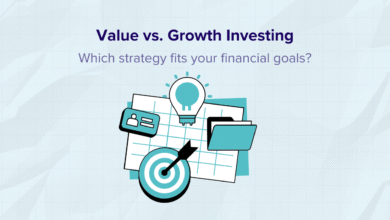The Expert’s Handbook: Becoming an Independent Financial Advisor for Financial Freedom

Key Takeaways:
- Financial independence means having enough wealth and resources to cover expenses without relying on a traditional job or paycheck.
- To achieve financial independence, set clear financial goals, assess and manage finances effectively, and prioritize saving and investing.
- An independent financial advisor provides personalized financial advice and services to clients, offering unbiased advice not tied to any specific financial institution or product.
- To become a financial advisor, gain strong knowledge and skills in finance and investment principles, and consider obtaining relevant certifications.
- Choosing to work as an independent financial advisor offers greater control and potential for higher earnings, but also requires responsibility and self-motivation.
- Building a successful financial advisory business involves developing a unique value proposition, attracting and retaining high-quality clients, and implementing effective marketing and branding strategies.
- As a financial advisor, help clients create and manage wealth by developing personalized investment strategies based on their goals and stay informed about market trends and investment opportunities.
- Personal financial independence as an advisor is crucial, so manage personal finances effectively, save for retirement, and diversify investments.
The Path to Financial Independence
Financial independence is a goal that many people aspire to achieve. It means having enough wealth and resources to cover your expenses and live life on your own terms, without relying on a traditional job or paycheck. But what exactly does financial independence entail?
1. Defining Financial Independence
Financial independence can be defined as the ability to sustain your desired lifestyle without the need for additional income from employment. It means having enough savings, investments, and passive income streams to cover your expenses indefinitely. Achieving financial independence requires careful planning, disciplined saving, and smart investment strategies.
2. Setting Financial Goals
To achieve financial independence, it’s important to set clear financial goals. Start by determining how much money you will need to cover your living expenses and maintain your desired lifestyle. Consider factors such as housing costs, healthcare expenses, education expenses, and discretionary spending. Once you have a target amount in mind, you can begin working towards it by saving and investing strategically.
3. Assessing and Managing Finances
Achieving financial independence requires a thorough understanding of your current financial situation. Begin by assessing your income, expenses, assets, and liabilities. Create a budget to track your expenses and identify areas where you can cut back and save more. It’s also important to manage debt effectively, prioritize saving for retirement, and build an emergency fund. Regularly review and adjust your financial plan to stay on track.
Becoming an Independent Financial Advisor
For individuals passionate about finance and helping others achieve their financial goals, becoming an independent financial advisor can be a rewarding career path. As an independent financial advisor, you have the freedom to work for yourself and build your own client base. Here’s what you need to know about pursuing this profession:
1. Understanding the Role of an Independent Financial Advisor
An independent financial advisor is a professional who provides personalized financial advice and services to clients. They assist individuals in managing their finances, setting financial goals, and making investment decisions. Independent advisors offer unbiased advice as they are not tied to any specific financial institution or product.
2. Gaining the Required Skills and Knowledge
To succeed as a financial advisor, it’s important to have a strong foundation in finance and investment principles. Obtain a bachelor’s degree in finance, economics, or a related field. Consider pursuing certifications such as Certified Financial Planner (CFP) or Chartered Financial Analyst (CFA) to enhance your knowledge and credibility.
3. Choosing the Right Path: Independent or Employed
Once you’ve acquired the necessary skills and knowledge, you have a choice to make: whether to work as an independent financial advisor or join an existing financial firm. While both options have their pros and cons, becoming an independent advisor offers greater control over your business and the potential for higher earnings. However, it also requires more responsibility and self-motivation to build your client base.
Building a Thriving Financial Advisory Business
Being a successful independent financial advisor goes beyond just providing financial advice. It requires building a thriving business that attracts and retains high-quality clients. Here are some essential steps to follow:
1. Developing a Unique Value Proposition
One of the keys to success as a financial advisor is identifying and communicating your unique value proposition. What sets you apart from other advisors? Determine your target market, specialize in a particular niche, and develop a compelling message that communicates the value you can provide to clients.
2. Attracting and Retaining High-Quality Clients
Building a solid client base is crucial for the success of your financial advisory business. Utilize various marketing strategies to attract potential clients, such as networking, referrals, content marketing, and social media. Once you have clients, focus on providing exceptional service, building trust, and maintaining regular communication to retain them.
3. Implementing Effective Marketing and Branding Strategies
To differentiate yourself from competitors, it’s important to establish a strong brand identity and effectively market your services. Develop a professional website, create informative content, and leverage social media platforms to showcase your expertise and engage with your target audience. Consider attending industry events and conferences to expand your network and enhance your visibility in the industry.
Mastering the Art of Financial Freedom
As a financial advisor, your ultimate goal is to help clients achieve financial freedom. Here’s how you can excel in this role:
1. Creating and Managing Wealth for Clients
As a financial advisor, your primary responsibility is to help clients create and manage their wealth. This involves developing personalized investment strategies based on their individual goals, risk tolerance, and time horizon. Stay up to date with market trends, economic conditions, and investment opportunities to provide informed advice and maximize returns for your clients.
2. Staying Ahead of the Game: Market Trends and Investment Opportunities
To succeed as a financial advisor, it’s crucial to stay informed about market trends and identify potential investment opportunities. Keep a close eye on economic indicators, industry developments, and investment trends to make informed recommendations to your clients. Continuously educate yourself through professional development and networking to stay ahead in the ever-changing financial landscape.
3. Achieving Personal Financial Independence as an Advisor
While helping clients achieve financial independence, it’s essential to prioritize your own financial well-being. Build a strong foundation by managing your personal finances effectively, saving for retirement, and diversifying your investments. By achieving personal financial independence, you set an example for your clients and enhance your credibility as a trusted advisor.
In conclusion, becoming an independent financial advisor can be a fulfilling career choice for those passionate about finance and helping others achieve their financial goals. By understanding the path to financial independence, acquiring the necessary skills and knowledge, and building a thriving financial advisory business, you can excel in this role. Remember to continuously educate yourself, stay ahead of market trends, and prioritize your own financial independence while guiding others towards achieving theirs.



